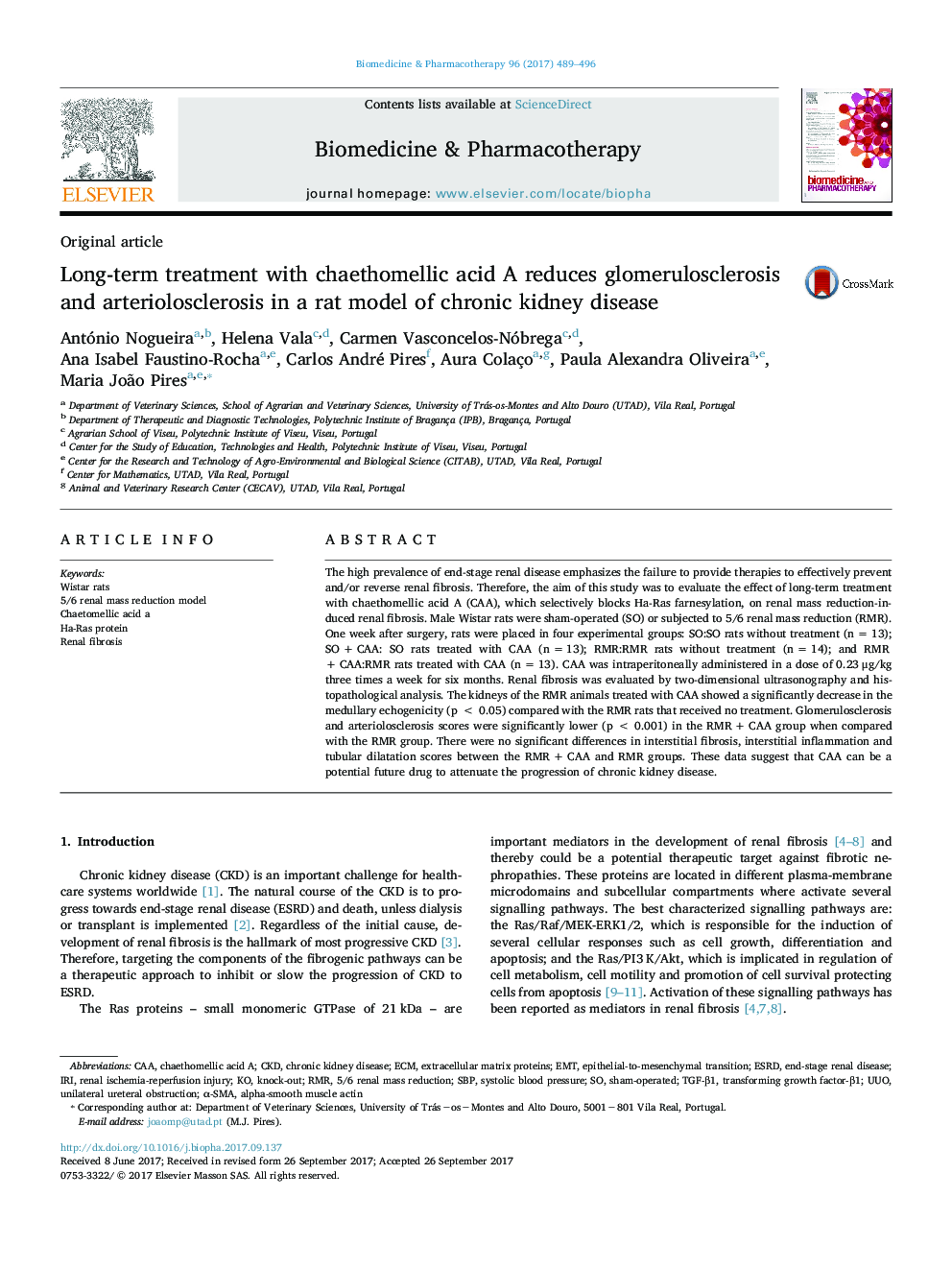| Article ID | Journal | Published Year | Pages | File Type |
|---|---|---|---|---|
| 5552472 | Biomedicine & Pharmacotherapy | 2017 | 8 Pages |
The high prevalence of end-stage renal disease emphasizes the failure to provide therapies to effectively prevent and/or reverse renal fibrosis. Therefore, the aim of this study was to evaluate the effect of long-term treatment with chaethomellic acid A (CAA), which selectively blocks Ha-Ras farnesylation, on renal mass reduction-induced renal fibrosis. Male Wistar rats were sham-operated (SO) or subjected to 5/6 renal mass reduction (RMR). One week after surgery, rats were placed in four experimental groups: SO:SO rats without treatment (n = 13); SO + CAA: SO rats treated with CAA (n = 13); RMR:RMR rats without treatment (n = 14); and RMR + CAA:RMR rats treated with CAA (n = 13). CAA was intraperitoneally administered in a dose of 0.23 μg/kg three times a week for six months. Renal fibrosis was evaluated by two-dimensional ultrasonography and histopathological analysis. The kidneys of the RMR animals treated with CAA showed a significantly decrease in the medullary echogenicity (p < 0.05) compared with the RMR rats that received no treatment. Glomerulosclerosis and arteriolosclerosis scores were significantly lower (p < 0.001) in the RMR + CAA group when compared with the RMR group. There were no significant differences in interstitial fibrosis, interstitial inflammation and tubular dilatation scores between the RMR + CAA and RMR groups. These data suggest that CAA can be a potential future drug to attenuate the progression of chronic kidney disease.
